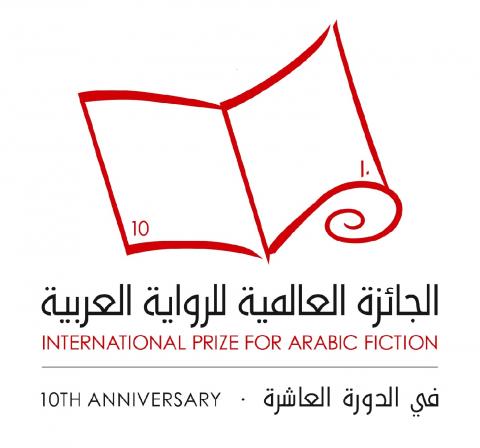Shortlist Announced for International Prize for Arabic Fiction 2017
16/02/2017

Mohammed Hasan Alwan, Najwa Binshatwan, Ismail Fahd Ismail, Elias Khoury, Mohammed Abdel Nabi and Saad Mohammed Rahim have today, Thursday 16 February, been announced as the six authors shortlisted for the tenth International Prize for Arabic Fiction (IPAF).
The 2017 shortlist, with author names in alphabetical order, is as follows:
| Author | Title | Country of origin | Publisher |
| Mohammed Hasan Alwan | A Small Death | Saudi Arabia | Dar Al Saqi |
|
Najwa Binshatwan |
The Slave Pens | Libya |
Dar Al Saqi |
| Ismail Fahd Ismail | Al-Sabiliat | Kuwait |
Nova |
| Elias Khoury | Children of the Ghetto – My Name is Adam | Lebanon | Dar al-Adab |
| Mohammed Abdel Nabi | In the Spider's Room | Egypt | Dar al-Ain |
| Saad Mohammed Rahim | The Bookseller's Murder | Iraq | Dar wa Maktabat Sutur |
This year’s six novels showcase the best in contemporary Arabic literature celebrating its rich heritage, while tackling untold stories and addressing topical issues. A Small Death sees the historical and spiritual adventures of Sufi thinker Ibn Arabi brought vividly to life in fiction for the first time and Al-Sabiliat focuses on a woman in southern Iraq who defies the military forces involved in the long war between Iraq and Iran. In The Spider's Room challenges taboos to give a voice to a marginalised group and The Slave Pens uncovers the history of slavery in Libya. Children of the Ghetto – My Name is Adam is a new approach to the Palestinian 'nakba' of 1948, and the fate of the inhabitants of Lud. Finally, The Bookseller's Murder reveals the artistic, cultured and human dimension of Iraqi civilisation, in the face of destruction following the American occupation.
Mohammed Hasan Alwan is the only author previously shortlisted for the Prize. That shortlisting was in 2013 for his novel The Beaver, he was also a participant in the first IPAF Nadwa in 2009 and a mentor in 2016. Three previously longlisted authors are shortlisted this year: Ismail Fahd Ismail who was longlisted in 2014 for The Phoenix and the Faithful Friend; Elias Khoury who was longlisted in 2013 for Sinalkul; and Mohammed Abdel Nabi who was longlisted in 2013 for The Return of the Sheikh.
The 2017 judging panel is made up of: Sahar Khalifeh (Chair), a Palestinian novelist; Saleh Almani, a Palestinian translator; Fatima al-Haji, a Libyan academic, novelist and broadcaster; Sahar ElMougy, an Egyptian novelist and academic; and Sophia Vasalou, a Greek academic and translator.
The novels selected were chosen from 186 entries from 19 countries, all published between July 2015 and June 2016.
Sahar Khalifeh, the 2017 Chair of Judges, comments:
‘The six novels chosen from the huge number (186) submitted to the International Prize for Arabic Fiction stand out for their brilliant artistic structure, development of characters and treatment of socially sensitive and daring subject matter. Some of them explore taboo areas, while others put their fingers on the pulse of critical situations in the complex Arab world of today and celebrate highlights of Arab heritage.’
The winner of the International Prize for Arabic Fiction 2017 will be announced at a ceremony in Abu Dhabi on Tuesday 25 April 2017, the eve of the Abu Dhabi International Book Fair. The six shortlisted finalists will receive $10,000, with a further $50,000 going to the winner.
Last year’s winner of the Prize was Destinies: Concerto of the Holocaust and the Nakba by Rabai al-Madhoun.
Fulfilling its ambition to increase the international reach of Arabic fiction, the Prize provides funding for English translation for its winners. Al-Madhoun’s Destinies will be published in English by AUC Press this autumn. Also this year, AUC Press is publishing English translations of former shortlisted titles Baghdad Eucharist by Sinan Antoon (shortlisted as Hail Mary in 2013) and Embrace on Brooklyn Bridge by Ezzedine Choukri Fishere (shortlisted in 2012).
The International Prize for Arabic Fiction is an annual literary prize for prose fiction in Arabic, which is recognised as the leading prize for literary fiction in the Arab world. It is run with the support of the Booker Prize Foundation in London and funded by Abu Dhabi Tourism & Culture Authority (TCA Abu Dhabi) in the UAE.
